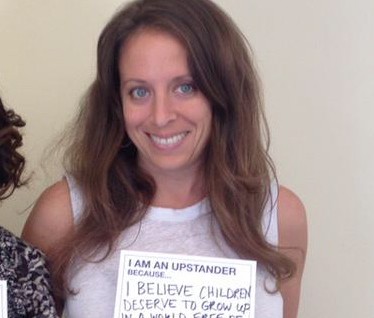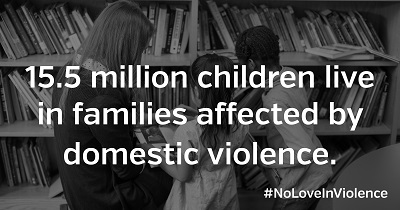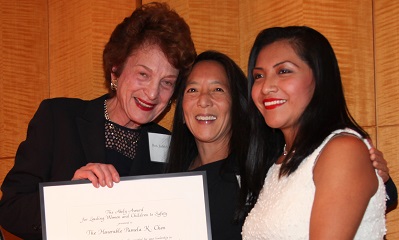Director Pam Krasner shares how the Children’s & Youth Services Program makes a difference.
Pam Krasner is an LCSW and the Director of Sanctuary’s Children’s and Youth Services Program (CYSP), where she oversees 21 counselors and support staff, and 6 interns, who serve over 2,000 children and teens every year. By collaborating closely with other Sanctuary staff, including lawyers, adult counselors and shelter supervisors, Pam and her staff can transform the future for an entire family.
In Part One of this Q&A conducted in honor of our Domestic Violence Awareness Month coverage of children and domestic violence, Pam shares why CYSP’s services are so essential to breaking the cycle of violence.
Thanks for speaking with us today, Pam! First question: what is the biggest myth you have encountered around children and domestic violence?
Pam: Domestic violence is steeped in myths and misunderstandings, and particularly around children. Many of the parents who come to Sanctuary seeking services believe that their children were not affected by the abuse. They often state the children were too young to notice or believe the children were not impacted because they were not in the room at the time of the abuse.
But in fact, children are perceptive and can be impacted even if they are not eyewitnesses. Even infants can be affected. Studies show that 80-90% of children living in homes with domestic violence can give detailed descriptions of what occurred.
So how does domestic violence impact children and teens?
Pam: Children and teens affected by domestic violence can experience an array of emotional issues – including guilt, anxiety, anger and fear. Exposure to abuse can result in developmental delays, hurt school performance, bring out aggressive behaviors, and affect physical health. Some children may experience Post Traumatic Stress Disorder. Even more startling is research indicating that boys who grow up in violent households are ten times more likely to become abusive themselves.
That said, all of these things are possibilities, not destiny, and there are many remedies to help children and parents address and prevent the effects of domestic violence. This is where CYSP staff can help.
How does CYSP work to remedy these issues? Do you have any real-life stories to share?
Pam: Recently I worked with a family whose story really illustrates all of the ways in which CYSP staff and programs come together to move our clients from fear and abuse to safety and stability.
My colleagues in the Legal Center were working with a woman named Mya on a major custody case. When I met Mya and her children, the oldest girl, Kasey, was 8, Carl was 5, and Joey was an infant, just 18 months.
These kids had witnessed their father horrifically abuse their mother, physically, emotionally and sexually. And the consequences of witnessing that abuse were clear. The older children had various emotional and behavioral problems. Joey was delayed, not walking or talking – he would scream incessantly when his mother left him in the childcare we provide for parents attending appointments.
My team sprung into action. Kasey and Carl were each assigned children’s counselors, LCSW staff who have specialty backgrounds in working with children who have experienced trauma. The family met regularly with their individual counselors, and then the counselors would meet together to check in and plan for how to address the issues that arose. This collaborative process is really critical to making a difference.
Along with counseling sessions, the counselors provided significant case management and educational advocacy on behalf of the children – with the lawyers, ACS workers and teachers and counselors at the children’s schools. We connected Kasey and Carl with tutors through Sanctuary’s Volunteer Program. We worked really hard to support the family from every angle possible.
Last time the family was here, Joey, the baby who once could not walk, rushed into my office on his little feet and took my hand, smiling and laughing all the way. The family overall is less anxious, and happier. It’s incredible to witness these changes.
This is the first in a two-part Q&A with CYSP Director Pam Krasner. Check back tomorrow as Pam reveals more about the work and the challenges faced by the counselors who work with Sanctuary’s youngest clients.
Updated: read Part Two now.
Speak out during Domestic Violence Awareness Month. Join us.



